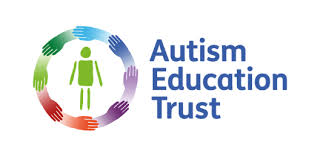Making Sense of Autism and Developing Good Autism Practice
The Autism Education Trust will deliver a combination of CPD-accredited Making Sense of Autism and Good Autism Practice modules in a set of two sessions, allowing time for reflection and activities between each. The first session from the course will start on 7 November 2024 and the second on 14 November 2024 both at 14:00-16:30 GMT (UTC).
Description

The sessions will be interactive with discussion points and activities and attendees will receive practical support packs that will empower them to implement their new skills and knowledge in their setting.
What is Making Sense of Autism?
An awareness raising moduledesigned for everyone, covering a fundamental understanding of autism in order to achieve good autism practice.
The aims
-
To extend your understanding of how autism affects pupils in school
-
To increase your expertise in recognising a pupil’s individual strengths and differences
-
To develop your skills in identifying barriers to learning for autistic pupils
-
To develop your understanding of what “reasonable adjustments” need to be made to support an autistic pupil in your setting.
Learning objectives
-
Approach autism as a difference rather than as a deficit or disorder
-
Recognise the three areas of difference for autistic pupils and how these can affect them
-
Listen to and learn from the perspectives of autistic pupils and their parents/ carers
-
Reflect on your practice and implement reasonable adjustments to support autistic pupils
What is Good Autism Practice?
This module is tailored for those who work more closely with autistic children and young people but is by no means limited to this audience. It provides delegates with practical strategies when supporting them.
The aims
-
Develop knowledge and understanding of good autism practice
-
Understand practical strategies and approaches that support autistic pupils
-
Collect information for a Pupil-Centred Education Plan
-
Involve the autistic pupil and their family in decisions
-
Ensure inclusive practice for all autistic pupils.
-
Learning objectives
After completing Good autism practice, participants will be able to:
-
Understand how the three areas of difference can impact the learning of autistic pupils
-
Know the importance of involving the pupil and family
-
Use approaches, strategies, and adaptations to remove barriers to learning
-
Develop knowledge about autism and the individual to inform pupil-centred plan
Additional information:
Delegate fees:
£180 per COBIS Member delegate
£190 per Non-Member delegate
If you are based in the UK, the delegate fee will be liable for VAT. Please email events@cobis.org.uk to process your registration.
If you are based outside the UK, but you are booking and paying for your place as an individual (rather than having the booking paid for by the school), you may also be liable for VAT. Please email events@cobis.org.uk to process your booking.
In all other situations, please tick the ‘organisation’ box when asked if the payee is an organisation or an individual.
Target audience:
When delivered separately, Making Sense of Autism is a ‘whole-school approach’ session suitable as an introduction for anyone in the education setting from teachers to lunchtime staff. Good Autism Practice is the next step and is for staff working directly with autistic pupils such as teachers, TAs, SENCOs, Inclusion Team.
Therefore, the sessions will be suitable for anyone working in an international school or setting but particularly useful for those who are directly teaching or supporting autistic pupils and want to learn practical strategies.
Presenter
Lisa Carey-Woolls
Lisa is a former headteacher of the first autism school in Qatar and is now a training consultant, supporting the AET and the National Autistic Society in high-quality training design and delivery.
Experience:
-
Teacher in an Autism Centre within a mainstream school in Bath for 15 years then the manager for 3 years.
-
Principal of the first Autism school in Qatar for 2 years.
-
Autism consultant for the Public Health centres in Qatar for 2 years.
-
Training consultant for the last 2 years delivering various NAS programmes to all types of schools, hospitals and other organisations, including training professionals in the parent programme ‘EarlyBird’.
-
Delivering EarlyBird and EarlyBird + to families within Bristol (Bristol Autism Team), Autism Compass “stay & play” for pre-school families in Bath, school & family training and support work.
Emily Niner is the Head of Strategic Partnerships and Projects at the AET. Alongside this role she is a Registered Intermediary with the Ministry of Justice working with autistic witnesses and victims in the criminal justice system. Prior to joining the team, Emily led a participation department, designing and delivering programmes for autistic young people across England. She is also a Churchill Fellow with her fellowship focusing on exploring post-diagnostic support services for autistic young people.